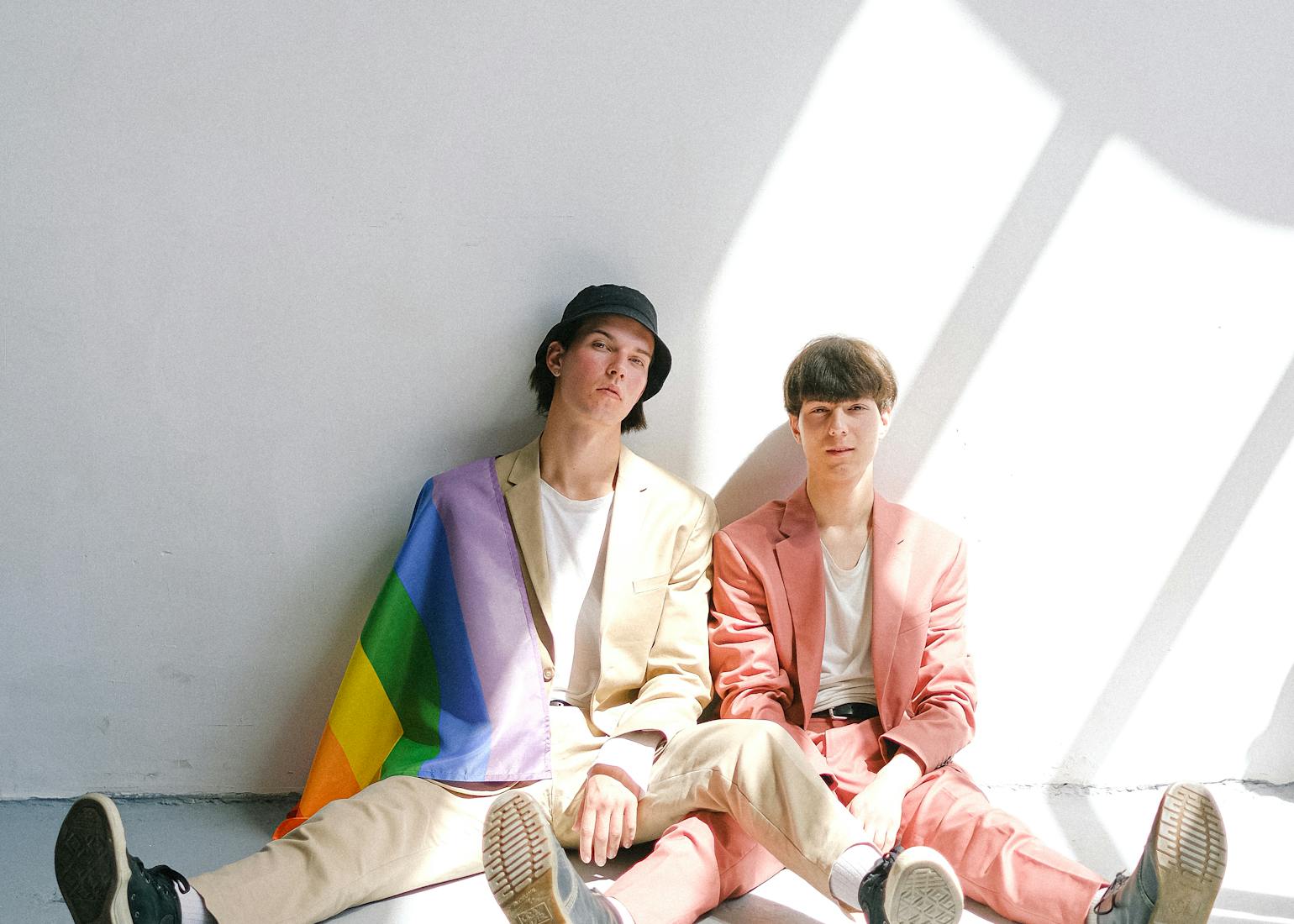The Duality of Comfort and Concealment for European LGBTQ+ Workers

In the workplace, European LGBTQ+ workers stand out for their comfort in initiating delicate conversations with their bosses, when compared with non-LGBTQ+ workers. However, beneath this ease lies a complex reality where these discussions are not always rewarded, and they have complicated feelings about their workplaces. This article explores the nuanced experiences of LGBTQ+ workers, shedding light on the challenges that colour their professional lives.
European LGBTQ+ workers feel more comfortable than non-LGBTQ+ workers having delicate conversations with their bosses, such as asking for time off work for mental health reasons (LGBTQ+: 45% vs non-LGBTQ+: 38%). Throughout various topics such as asking for a pay rise (LGBTQ+ men: 43%, non-LGBTQ+ women: 28%), promotion (LGBTQ+ men: 41%, non-LGBTQ+ women: 26%), or asking to not work with certain clients for ethical reasons (LGBTQ+ men: 43%, non-LGBTQ+ women: 25%), LGBTQ+ men are consistently the most comfortable with such discussion, while non-LGBTQ+ women are the least comfortable.
However, equality in the workplace is yet to be achieved. While LGBTQ+ workers are comfortable having discussions with their bosses, it’s not always rewarded. LGBTQ+ workers are more than twice as likely to lie to their bosses about taking time off for mental health, with 37% admitting to it compared to 17% of non-LGBTQ+ workers, suggesting having the conversation is only half of the battle. LGBTQ+ men (41%) are more likely to lie than LGBTQ+ women (32%), although both report similar rate of comfort in initiating the conversation (46% vs 44%, respectively).
Additionally, LGBTQ+ workers are not free from wider societal pressure in the workplace. LGBTQ+ workers are more likely to feel under pressure to look a certain way at work than non-LGBTQ+ workers (LGBTQ+: 41% vs non-LGBTQ+: 23%) or to drink alcohol at social or client events (LGBTQ+: 35% vs non-LGBTQ+: 16%). They are also less satisfied with their workplace relationships compared to non-LGBTQ+. Two in five LGBTQ+ workers (37%) admit they only pretend to like their work colleagues, almost double in comparison to non-LGBTQ+ workers (19%).
On top of it, LGBTQ+ workers report higher negative feelings and lower positive feelings at work compared to their non-LGBTQ+ counterparts. One in eight LGBTQ+ workers reported feeling angry and sad (both 13%), compared to one in ten non-LGBTQ+ who reported the same feelings (both 10%). The difference is particularly notable among men, where a quarter of LGBTQ+ male workers (24%) feel content at work, compared to a third of non-LGBTQ+ male workers (35%).
A considerable number of LGBTQ+ workers are also concerned about their job security and their ability to retire, with a third (32%) are worried that their jobs will be replaced by automation and two in five (44%) reported not knowing how they will afford to retire. In comparison, one in five (20%) non-LGBTQ+ express concern of automation and a third (34%) worry about affording retirement.
These findings suggest LGBTQ+ workers still face non-negligible challenges at workplace. This may also prove costly for employers, with two in five LGBTQ+ workers (36%) considering changing their careers. Employers and workplaces still have ways to go and work to do before everyone feels welcome at work.
Written by Tyas Ayuningtyas, Senior Analyst for Opinium Amsterdam.




